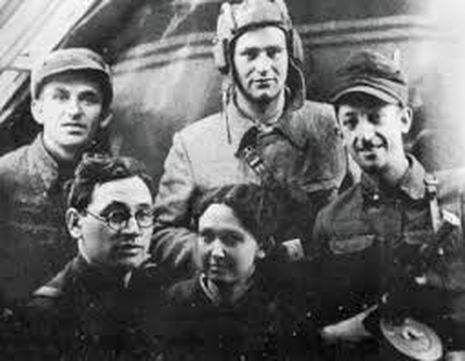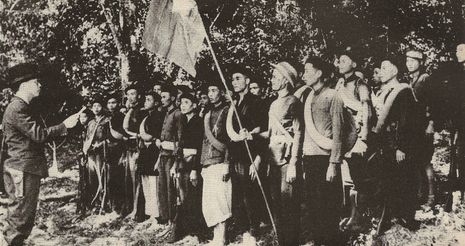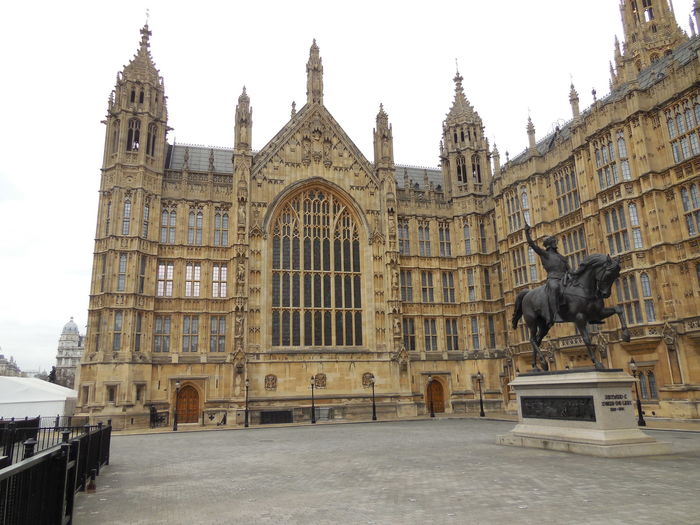Victory in Europe belongs to the workers of the world, not to colonial Empires
In the wake of VE Day, Owen Dowling explores the contradictions behind the Allied Empires’ victory and their creation of a ‘free world’, drawing attention to the movements led by working class and colonised peoples during and after the Second World War.

I spent VE-Day thinking about my great-grandfathers and great-great uncles who fought to save the world from fascism - especially my great-great uncle Bob Matthews, a working-class lad from Liverpool who gave his life fighting Nazism when his Merchant Navy ship went down in the Atlantic. He's buried in Cuba.
Many of us will have relatives who fought in the Second World War, and rightly feel proud of their service and sacrifice to build a better world. Yet I struggle to get behind the official adulation of last Friday’s commemorations. My hesitation does not stem from some complacent pacifism - the military destruction of Nazi Germany was unquestionably a triumph for humanity - but rather from the fact that this state-sponsored veneration self-servingly and incuriously elides pressing historical questions.
"....this state-sponsored veneration self-servingly and incuriously elides pressing historical questions."
Even aside from cynical invocations of ‘national unity’ to deflect from this government’s ongoing failures, the ways in which establishment politicians have marked the commemoration of 1945 - from complaints of the humiliating “invasion” of Britain by migrants on a “day of national celebration”, to bunting-laden festivities for Churchill, Crown and Country, to emphasising the national solidarity that drove post-war reconstruction - have presented a limited picture of this history. The war, and the world it produced, were more contradictory than these reverential proceedings allow.
The Second World War was many things: an inter-imperialist conflict between capitalist Empires for global hegemony; a popular crusade against fascism; a defensive struggle by the peoples of Europe and Asia against Axis occupation. Britain and France fought to defend their incumbent Empires from aggressive rivals, and the United States to establish its own, while Jewish and Roma partisans struggled to simply survive against Nazi genocide. We can, and should, confront these manifold complexities as we commemorate VE-Day.
VE-Day represented the defeat of Nazi Germany, but the emancipatory intimations of peace would only materialise for some. The conflict did not begin in 1939 for China, Spain, or Abyssinia, nor end in 1945 - with continued political unrest across a bifurcated Europe, and colonised peoples still locked out from the ‘freedom’ that they were promised would follow ‘victory.’ This freedom would have to be wrested from European colonialism through subsequent liberation struggles - for those suffering under colonialism, VE-Day marked only the beginning of the war against racist imperialism. Yet ‘victory’ still meant genuine emancipation for millions. We must interrogate this legacy, with all its national, racial, politico-economic, and ideological faultlines.
"For those suffering under colonialism, VE-Day marked only the beginning of the war against racist imperialism."
The Allied Forces had waged war under the banner of human freedom against the tyranny of fascism yet, while compared to Nazism these powers certainly represented forces of liberation, the extent of that liberation became sharply curtailed as the campaign concluded. The insistence of the Allied leadership that only white soldiers from the majority-black Free French forces would retake Paris was evocative of the chauvinism that would characterise the incoming Free World. It would not do for victory in France to be symbolised by the military defeat of Germans by Senegalese troops - it might give colonised communities unwelcome ideas about overcoming their white European subjugators by force.
The reconsolidation of Anglo-French colonial regimes after May 1945 represented a betrayal of the principles upon which the anti-fascist struggle had been waged, that will forever stain the flags of those victorious Empires. In some territories, notably the Indian sub-Continent, the edifice of colonialism had been so eroded by war and anti-colonial agitation that a sustained reimposition of imperial rule had been made infeasible. But the loss of some colonial possessions necessitated the intensification of domination and exploitation in others.
The ‘Other 8th of May’, when a VE-Day celebration-turned-anti-colonial demonstration in French Algeria was met with the massacre of thousands, was emblematic of this contrast between the emancipatory spirit invoked by ‘victory’, and the delimitation of that emancipation within colonial bounds. From Attlee’s terror in Malaya and the French reconquest of Indochina to the brutal counterinsurgency in Kenya, the freedom the Allies had pledged would follow victory immediately proved to be conditional on the global colour line.

Post-war social democracy undoubtedly represented a material victory for Western European workers, offering an improved quality of life after depression and war. Rather than through substantial domestic redistribution, however, these welfare-states were largely financed through the continued exploitation of colonised peoples - both in the Global South, and at home as racialised migrant labour. The Spirit of ‘45 was real, but fashioning a new world within the structures of the old meant its gains were denied to those upon whose exploitation that world was built.
The counterrevolution that followed VE-Day curtailed the universalist, internationalist vision for the post-war world - with threatened ethno-civilisational hierarchies redrawn, and the colonial subordination of many ‘liberated’ territories restored. We should not romanticise the world after 1945 as one meaningfully characterised by ‘freedom’, nor commemorate VE-Day with jingoistic adulations of symbols of Empires that re-entrenched themselves through duplicity and terror.
"The example to honour from that war is not that of Churchill, but that of the young Jewish partisans in the Warsaw Ghetto..."
There was something to truly celebrate, however - the experience of the popular struggle by the international working-class in their millions against fascist imperialism. The defenders of Leningrad, the firefighters of Coventry, the partisans of Yugoslavia, and the invaders of Normandy formed an internationalist anti-fascist coalition, inheritors of a tradition that had defended the Spanish Republic, and condemned Nazism far louder and earlier than the protagonists of Churchillian hagiography.
We should commemorate VE-Day not through bellicose nationalism, nor wistful odes to some 'free world' built after victory, but through the memory of the millions of workers of all countries who organised, fought, and died to defeat fascism, dreaming of a genuinely free world. The example to honour from that war is not that of Churchill, but that of the young Jewish partisans fighting to the end in the Warsaw Ghetto, defiantly singing the Internationale amidst the ruins.
In memory of those who fought across the world to destroy fascism, we should take up their cause of internationalist solidarity, and work to realise the true freedom that those who fell in Stalingrad, Anzio, and Warsaw gave their lives envisioning. Let the continued struggle against fascism, racism and colonialism, and for a better world for all, be what animates you as we commemorate Victory in Europe.
 Comment / College rivalry should not become college snobbery30 January 2026
Comment / College rivalry should not become college snobbery30 January 2026 News / Downing Bar dodges college takeover31 January 2026
News / Downing Bar dodges college takeover31 January 2026 News / Cambridge for Palestine hosts sit-in at Sidgwick demanding divestment31 January 2026
News / Cambridge for Palestine hosts sit-in at Sidgwick demanding divestment31 January 2026 Lifestyle / Which Cambridge eatery are you?1 February 2026
Lifestyle / Which Cambridge eatery are you?1 February 2026 Science / Meet the Cambridge physicist who advocates for the humanities30 January 2026
Science / Meet the Cambridge physicist who advocates for the humanities30 January 2026










